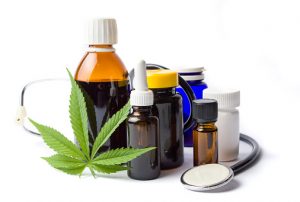
This has led to a crisis in America. Today, opioid-related drug overdoses have become the leading cause of preventable death in the United States, killing nearly 100 people every day. However, researchers at the University of New Mexico have found a possible solution to this growing problem of opioid addiction: medical cannabis.
“Current levels and dangers of opioid use in the U.S. warrant the investigation of harm-reducing treatment alternatives. Our results highlight the necessity of more extensive research into the possible uses of cannabis as a substitute for opioid painkillers, especially in the form of placebo-based, randomized controlled trials, and larger sample observational studies,” said Dr. Jacob Miguel Vigil, associate professor of the department of psychology, who led the study.
A highly addictive prescription medication
What people don’t realize is that opioid medication is essentially prescription grade heroin, but instead of buying it on the street, it is prescribed to you by a doctor. Granted, a doctor will not simply give you opioid medication, there has to be a reason. Commonly, this reason is chronic pain, like from the lower back or due to a medical disorder.
However, about 29 percent of patients prescribed opioids for chronic pain misuse them, with about 12 percent developing an addiction to the drug. In fact, 80 percent of people who use heroin first misused prescription opioids.
The study in question looked at medical cannabis use and prescription opioid use among chronic pain patients. They found that natural cannabis sativa and other extracts made from the cannabis plant can serve as a viable alternative for opioid-based medication used to treat chronic pain. Cannabis use was associated with a strong reduction of opioid use as well.
The use of medical cannabis has yielded remarkable results for the treatment of a wide range of medical conditions such as post-traumatic stress disorder, epilepsy and spasticity, and chronic pain syndromes. However, U.S. federal law makes researching the substance challenging.
Switching to an opioid alternative
The results of the study led to a significant portion of chronic pain patients followed who substituted their opioid prescription with cannabis to help manage their symptoms. Overall, the patients were 17 times more likely to cease their opioid prescription and five times more likely to reduce their opioid prescription dosage.
The subjects indicated improvements in pain reduction, quality of life, social life, activity levels, and concentration after using cannabis for one year.
“The economic impact of cannabis treatment should also be considered given the current burden of opioid prescriptions on healthcare systems, which have been forced to implement costly modifications to general patient care practices, including prescription monitoring programs, drug screening, more frequent doctor-patient interactions, treatment of drug abuse and dependence, and legal products and services associated with limiting opioid-related liability,” said Dr. Sarah See Stith, assistant professor at the department of economics, University of New Mexico.
Related: Cannabis proven to reduce stress, but only at the right dose
[adstoappear]